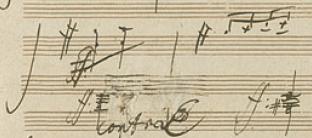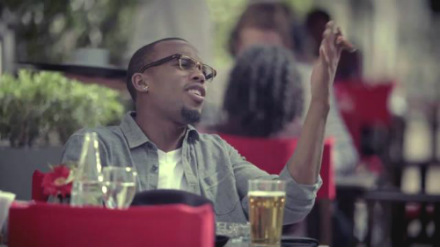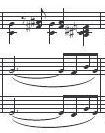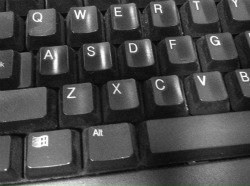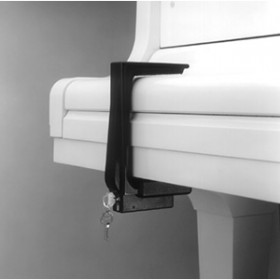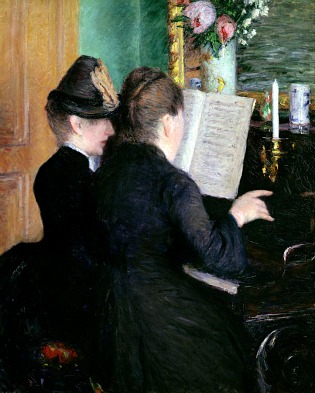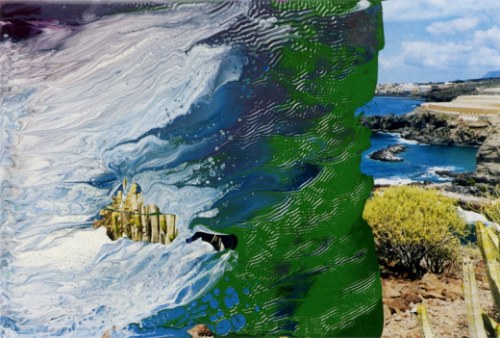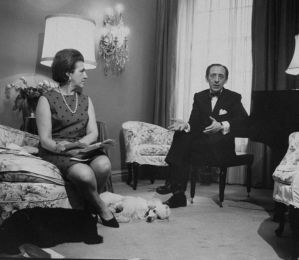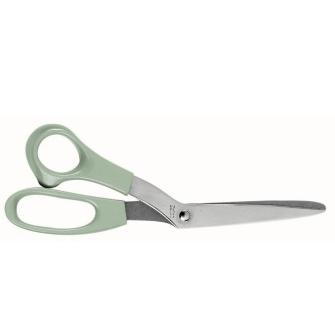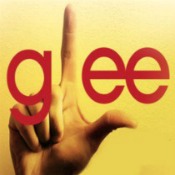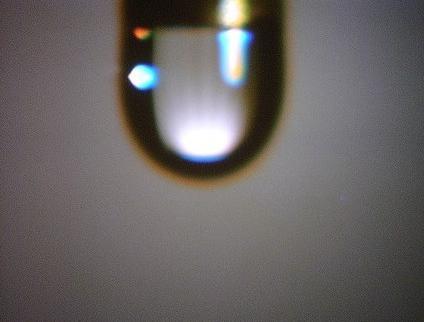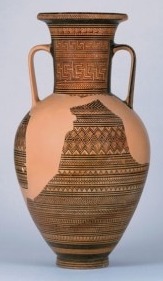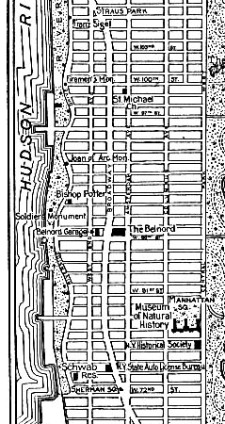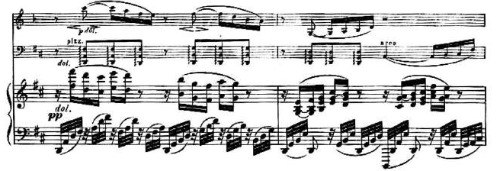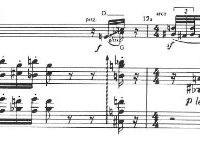There is music that suffers in performance from conventionally good music-making. Mainstream classical playing seems to rely on clichés of "musicality" -- arching every phrase, breathing between groups, tracing all those lines up and then down again. Some pieces need different treatment. The first movement of Beethoven's Opus 101 is an extended, wordless run-on sentence. Theoretically, we may understand that no satisfying cadence in A major … [Read more...]
Sonic Enharmonic
Words can be bent in pronounciation to suggest other words -- subtly shading, or adding on to signification. In B.o.B.'s "So Good," the word groups "how you feel [fe-el]," "fantasy oh," "put your feet up," and "Señorita" are made almost to rhyme, and conform to the same four-syllable emphasis-pattern. The sound is the word is the music is the sound. It's joy-inducing virtuoso display. Wordless music also offers possibilities for sonic … [Read more...]
Rhythm Puzzle
In playing piano duets or two-piano music, just being together is particularly challenging. The beginning of the sound of a note played on the piano is definite and sudden. What might pass for good ensemble playing in the performance of a piece for violin and piano (with the violin's characteristically less-instantaneous note-beginnings), will be unsatisfying in 2-piano playing. Pianists playing together become note-arrival authorities. As I was … [Read more...]
Clover V
In considering the ways today's art is an art of appropriation, let's notice a basic change that's occurred in writing, composing, and design. Editing used to involve re-writing, re-typing, re-drawing -- physically copying some previously used material into each new version. Computer-enabled editing techniques now mean that the virtual copying and pasting of material from one version of a project to another is routine whether we're working with … [Read more...]
Practicing non-take-twoness
After I play through a program or a piece for someone (as a step in preparing for public performance), I don't return to the piano to practice. It can be difficult, if something went badly and I want to work on it. But the separation -- practicing for the real concert by preserving the "non-take-twoness" of the performing experience -- matters most. I've read of Busoni returning to the hall to play through an entire concert after the audience … [Read more...]
Why (not) demonstrate?
It's the routine of many piano lessons: Teacher sitting next to student sitting at the piano. One copy of the written music. Student and teacher examine it together. From time to time, teacher reaches over, or deseats student, in order to demonstrate details, or even phrases of the music. (In an unkind moment, I have called it "piano-teacher-position.") In an alternate version, the teacher occupies a second piano, demonstrating sound, techniques, … [Read more...]
Contemporary Music
Ah, to play the new music of 2112, what joy. To hear the latest sounds of neo-zoology, the sweet tones of the nrad. The new always is. … [Read more...]
PW
P. W. -- the initials of Paula Wray McDonald, my wife, partner (and high-school girlfriend). But the two letters PW really stand for "Pianist's Wife." I am the pianist's wife, Hurrah Hurrah for the pianist's wife! Ah yes, it is a gruesome [glorious] life To be the pianist's wife. Wanda, Nela, Naomi -- that's a lineage. Helpmates, sounding boards, ghost writers, taskmasters, goads. Paula had lessons from Tracy Taub... Maxims and … [Read more...]
Arts & Crafts
I'm printing slightly enlarged versions of the pages of a score by Philip Glass that I will play at the LPR Glass-birthday event later this month. The physical resizing, repaginating, and relineating of written music sometimes makes practicing and performing easier. For a long time, this work was accomplished with photocopying, scissors, or paper cutter, and adhesive tape. The pianist Judith Gordon called it "arts and crafts." Some outsized … [Read more...]
Klained
A recording I made of Philip Glass's Metamorphosis One became the basis for a YouTube video. I never met the YouTuber who posted it, though he emailed me and asked permission. I could only tell him the rights belong to the record label, not me. It's a spare video. (There's a single image of a lake.) This music is featured in the cult-fav TV show Battlestar Galactica. And a lot of BSG fans find the video. The music's also used in NPR's This … [Read more...]
Catalyzing Adulteration
I'm sipping a single-barrel bourbon. Rather strong. I add some drops of water, and then a few more. And the extraordinary, intense dark taste comes into sharp focus. It's like adding adrenaline to my playing of Brahms's music in Jordan Hall. Or adding salt to soup (more if it's cold). Or adding momentary touches of pedal to an already carefully played legato phrase of piano music. … [Read more...]
Amphora
In earlier museum practice, shards of ancient decorated pottery were pieced back together with missing sections reconstructed and plausible designs painted in. Missing parts of an image were supplied by restorers. As exhibited, those restored vessels had complete surface decoration. Some fragments were antique; the rest, the painted-in parts, made a whole pot look as it might have before it was broken. Today, it's more likely that the missing … [Read more...]
Pianohood
Martha eats in the restaurant across Broadway. Rachmaninoff lived around the corner. I live here. … [Read more...]
Unhinged
C. P. E. Bach writes in his treatise: "A musician cannot move others unless he too is moved. He must of necessity feel all of the affects that he hopes to arouse in his audience, for the revealing of his own humor will stimulate a like humor in the listener. In languishing, sad passages, the performer must languish and grow sad. Thus will the expression of the piece be more clearly perceived by the listeners...." It's an old and ongoing … [Read more...]
A short history of measure numbers
There didn't used to be any. Schoenberg was an early numberer of every bar. But, in some manuscripts, no number 13 (12, 12a, 14...)! New notated music became so particular that it needed to be possible easily to scrutinize it beginning at any measure, in rehearsal. Old music that was part of the canon got measure numbers as it was republished, after 1900. (Nineteenth-century collected works editions didn't yet include this modernism of bar … [Read more...]

